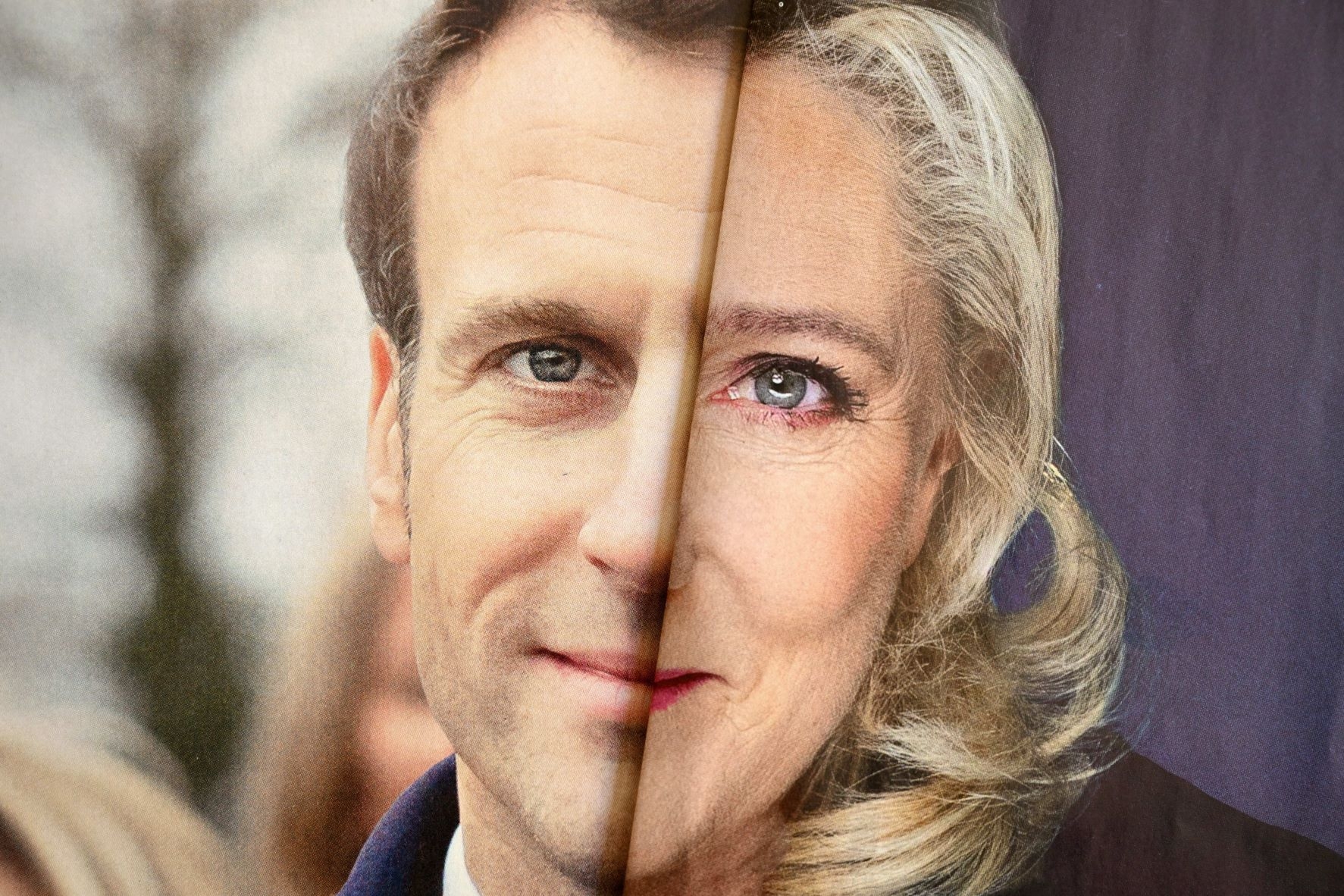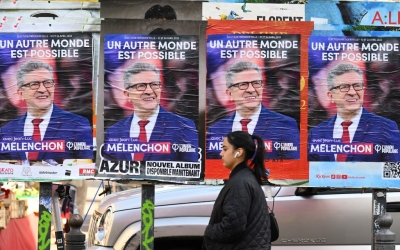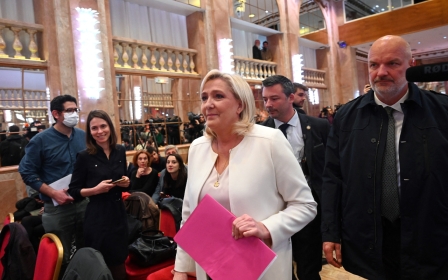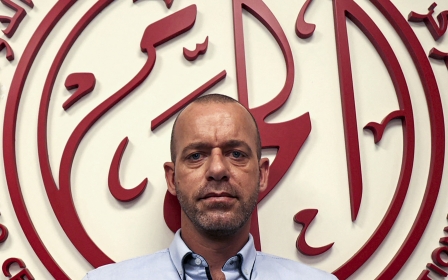France elections 2022: For North Africans seeking visas a Macron-Le Pen run-off is the worst possible scenario

Khalid, an engineer living in the suburbs of Casablanca, the financial capital of Morocco, said he had "avidly" followed the progress of the first round of the French presidential election.
While many Muslims view the prospect of virulently Islamophobic candidate Marine Le Pen winning Sunday's election with concern, Khalid said it could present an opportunity for his country.
"If Marine Le Pen is elected president, Morocco will have to use whatever leverage it has to get France to acknowledge Moroccan sovereignty over Western Sahara," he said.
He added he hoped France might follow in Spain's footsteps and support Morocco's autonomy plan for the contested territory.
"I’m invested in the debate, more than the outcome," he admitted.
"What I want to know is why the electoral campaign here in Morocco isn’t as heated, why there isn’t the same level of debate."
As with every French presidential election, Moroccans - who represent the second biggest non-European foreign community in France, numbering some 750,000 - had their eyes glued to their screens during the results of the first round, which will culminate in a duel on 24 April between incumbent Emmanuel Macron (in the lead with 27.6 percent of votes) and Marine Le Pen (23.4 percent of the votes).
Macron’s decision to tighten France's policy for issuing visas to nationals of Morocco, Algeria and Tunisia in September 2021, to exert pressure on the countries on the southern shore of the Mediterranean to take back their nationals living illegally in France, undoubtedly has a lot to do with why north Africans are paying so much attention.
Amina, a 29-year old from Rabat, who said she always obtained tourist visas without any difficulty until last September, agreed French immigration policy was "a critical issue" in Morocco.
"Recently I have been refused a visa, despite my paperwork being all in order," she said.
"I don’t get the impression that Macron... will be very different from Le Pen on that score," she added, saying she had set her hopes on the candidacy of left-wing candidate Jean-Luc Melenchon.
‘It’s always complicated with France’
In Algeria, where the number of visas granted has been halved, there are similar concerns.
"There’s a risk that this quota could be reduced still further if Macron is re-elected," Fatima, a 27-year-old Algerian, told MEE.
"And if Marine Le Pen gets into the Elysee Palace, she’ll definitely bring in further measures against migrants. Basically, we can’t afford to ignore these results. The Algerian diaspora in France [estimated at between 800,000 and 1.2 million people] is very large, and the election of Marine Le Pen could make things worse for them, and they are already suffering the effect of five years of Macron."
Amine, a 32-year-old Algerian said she felt she could end up being part of one of the last migratory waves in France.
‘I think that both of them [Macron and Le Pen] will gradually close France off to immigration. Over the next five years, Muslims will find life gets even tougher’
- Amine, Algerian, age 32
"I think that both of them [Macron and Le Pen] will gradually close France off to immigration. Over the next five years, Muslims will find life getting even tougher," she said.
"For me, re-electing Macron, means maintaining the same policy of police brutality and restricted visas. [He] says all the right things in public, but when it comes down to it, his policies are far-right policies."
In Tunis, in front of the building of the TLScontact visa application centre, Mounira - who has been married to a French man for 15 years - is already planning for a France led by Le Pen.
"If Le Pen becomes president, then I’ll become French!" she told MEE, in reference to the right to nationality through marriage.
"Up till now, I have been renewing my visa easily because my husband is French. But if she gets in… it will be much more difficult to get visas and that will make my life more complicated, when my children go to study in France."
Cyrine, 25, emerged from the same building smiling - after four days she had obtained her visa.
A trainee doctor, she is planning her second visit to France as a tourist and may end up completing her studies there one day.
"I fear Marine Le Pen becoming president. I think that could impact on my career plans," she said.
She added that she believed Macron was favourable to Tunisians, describing the reduction in the number of visas as just "a political ploy ahead of the election".
A little further on, sitting on the low wall of a car park facing the centre, Amor is waiting for his parents.
The software engineer has been living in France since 2017 with his German wife. For him, the French presidential election won’t change much in terms of visas.
His parents opted to apply for a Schengen visa from Germany.
"I’ve got an apartment in Germany, so they can get a two-year visa, it’s much more straightforward," he said.
"It’s always complicated with France."
‘It won’t change our life much’
While for many Algerians, Moroccans and Tunisians, the rise of the far-right is repugnant, some hope Le Pen could at least change the status quo.
Amor, who described himself as "a citizen of the world", said that though he would prefer Macron to win, it would be better for Tunisia for Le Pen to get in.
‘The sight of several parties staking their claim for the Republic, parroting far-right ideas … have left me disinterested in French politics’
- Yasmine, student, Algiers
He argued that it would be an opportunity to review all the contracts between the two countries.
"In the south of Tunisia, there’s a third of our territory which can’t be accessed because it’s being exploited by Total. Le Pen is like Trump, who was the best US president from the economic viewpoint," he suggested.
In Algiers, Yasmine, 32, who spent time in France as part of her studies, admitted she was only following the election "from a distance".
"The sight of several parties staking their claim for the Republic, parroting far-right ideas, and Eric Zemmour, found guilty of racist and xenophobic speech, running for the highest office in France, have left me disinterested in French politics," she told MEE.
Another Casablanca resident, Said, said politicians were playing with "far-right discourse" across the board, regardless of who won.
"Yesterday evening, I was talking about this with my friends, and we are all saying the same things about the rise of the far-right in France," he said.
The political and financial crisis in which Tunisians are currently immersed has, for many, taken precedence over the desire to delve into what is happening elsewhere.
One woman waiting outside the visa centre in Tunis said she was simply "not interested" in what happened in France.
"The French presidential election? I’m not interested. We already have enough of our own politics, no need to worry about other people’s," she said, checking her paperwork one last time before joining the queue in front of the TLScontact centre.
Middle East Eye propose une couverture et une analyse indépendantes et incomparables du Moyen-Orient, de l’Afrique du Nord et d’autres régions du monde. Pour en savoir plus sur la reprise de ce contenu et les frais qui s’appliquent, veuillez remplir ce formulaire [en anglais]. Pour en savoir plus sur MEE, cliquez ici [en anglais].





